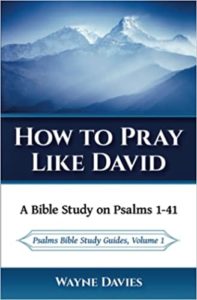 The Bible claims to be, and is, the very Word of God. Yes, the words of this book were written by people, and each human author utilized his particular writing style and vocabulary, but the ultimate source of Scripture is Almighty God himself.
The Bible claims to be, and is, the very Word of God. Yes, the words of this book were written by people, and each human author utilized his particular writing style and vocabulary, but the ultimate source of Scripture is Almighty God himself.
Psalm 12:6 is one of many verses in the Bible to make this bold statement. Let’s take a closer look at what David meant when he said, “The words of the LORD are flawless, like silver refined in a furnace of clay, purified seven times” (Psalm 12:6 NIV 1978).
The word “flawless” means pure. But let’s not take David’s analogy to its illogical extreme. The Word of God was not impure and therefore in need of purifying. The point here is that Scripture contains no impurities; it never has and it never will. What is in view is the finished product.
How can this be? The perfection of Scripture is the direct result of its divine origin. The Bible is infallible because it is inspired, or breathed out, by God.
We can express the relationship between the inspiration and infallibility of the Bible like this:
- Scripture claims to be the very Word of God because every word of it comes from his mouth. 2 Timothy 3:16 makes this clear. “All Scripture is God-breathed.”
- God cannot lie. He always speaks the truth. Hebrews 6:18, “It is impossible for God to lie.”
- Therefore, the Scriptures contain no errors. Psalm 12:6, “And the words of the Lord are flawless.”
Other verses that teach these concepts include Psalm 18:30, “As for God, his way is perfect; the word of the Lord is flawless” and Psalm 119:160, “All your words are true.”
Wow! Isn’t this wonderful news? With so much uncertainty in the world, aren’t we blessed to have the perfect Word of God in our hands to read and treasure every day of our lives?
I must ask you: How are you feeling today about the inspiration and infallibility of the Bible? Do you have gratitude in your heart toward God for the amazing gift of Scripture? Can you say with the psalmist, “At midnight I rise to give thanks for your righteous laws” (Psalm 119:62)?
Do you ever wake up in the middle of the night? I do. Every now and then I wake up at 3 or 4 am. I’m not sure why. And it doesn’t matter. The last time it happened, I was wide awake and ready to go! I started reading the Bible, which is how I usually start the day. My mind became filled with thoughts about God’s Word and how I’d like to tell people about it.
At first, I thought, “I woke up too early. Shouldn’t I go back to bed and get some more sleep?” But I was too excited about the Word. I wanted and pour myself into the study of the greatest Book ever written!
Do you ever have moments like that? You get so excited about what God is teaching you, you can’t even sleep! I usually sleep like a log. But whenever I get up a few hours early, I head straight for my Bible and read it or study it or write about it.
I do have times when my heart soars with delight in the Word and I can honestly say to God, “How sweet are your words to my taste, sweeter than honey to my mouth” (Psalm 119:103).
How about you? If so, please allow me to encourage you to tell someone about it, starting with God. We have ample reason to give thanks to God any time of day for his precious Word. Amen?
When you experience joy in reading and studying the Bible, why keep your enthusiasm to yourself? May your love for and delight in the Word be contagious!
NOTE: The above comments are an excerpt from my book, How to Pray Like David: A Bible Study on Psalms 1-41, available on Amazon in Kindle and paperback.
There are 41 chapters in this book, one for each psalm. And each chapter in How to Pray Like David contains Questions for Further Study, Reflection, and Discussion. These questions are ideal for either individual or group study.
Here are the questions for Psalm 12:
1. According to Psalm 12:6, the Word of God is flawless (NIV) and pure (ESV) because God is flawless and pure. Jesus said, “I am . . . the truth” (John 14:6). And he prayed to the Father, “Sanctify them by the truth; your word is truth” (John 17:17). Take time now to reflect on this magnificent teaching on the infallibility of Scripture. Then write out a prayer of praise and thanksgiving to God for the incredible gift of his Word. Be like the psalmist and say, “I rise to give thanks for your righteous laws” (Psalm 119:62).
2. Have you ever wondered, “What would my life be like if God had not given us his Word?” Can you remember who first gave you exposure to the Bible? Was it your parents, a Sunday school teacher, a pastor, or a friend? Offer another prayer of thanksgiving to God for the person (or people) who first taught you the Bible.
3. Let’s reflect on the prayer of Jesus quoted above: “Sanctify them by the truth; your word is truth” (John 17:17). The word “sanctify” can mean “to make holy.” God sanctifies us by his Word. He renews us and changes us and makes us more like Jesus – and he does this through the transformational power of his Word. How has God been at work in your life by the life-changing work of his Word? Reflect on what he has done for you, in you, and through you because of his Word. Offer praise and thanksgiving to him for this!
4. Psalm 12 is a study in contrast: the words of sinful mankind (verses 1-4, 8) are presented in stark contrast to the Words of God (verses 5-7). How are the wicked (and the words of the wicked), described in verses 1-4?
5. In verses 5 and 7, what promises of God are brought to bear on the plight of God’s people?
6. Our sinfulness is seen vividly through our tongues. James wrote: “The tongue also is a fire, a world of evil among the parts of the body. It corrupts the whole person, sets the whole course of his life on fire, and is itself set on fire by hell . . . no man can tame the tongue. It is a restless evil, full of deadly poison” (James 3:6, 8). Over the years, what has God been teaching you about the use of your tongue? Is there a specific sin related to your speech that you continue to struggle with? What practical steps can you take to allow the sanctifying power of God to work in this area?










